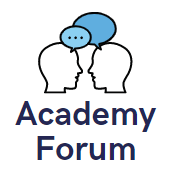We are looking forward to welcoming you to the 9th Annual Learning and Teaching Conference, which is just over a month away, 29th June – 2nd July 2021. This year’s conference theme, Improvisation within Constraint: Reshaping a Learning Community in a Time of Change aims to reflect the commitment that AU staff have to enhance the student learning experience.
We’re pleased to confirm our full programme.
You can register for the conference by completing this online form.
We’re very excited to welcome four external speakers this year:
- This year’s keynote speaker is Dr Chrissi Nerantzi who is Principal Lecturer – Academic CPD, University Teaching Academy (UTA), Manchester Metropolitan University. Dr Nerantzi will focus on open and flexible pedagogies.
- Our second external speaker, Andy McGregor, who is Director of edtech for JISC, will be delivering a workshop focusing on the future of assessments.
- Our third external speaker is Dr Dyddgu Hywel, Senior Lecturer in Education at Cardiff Metropolitan, will be delivering an interactive presentation on prioritising student and staff well-being. (Dr Hywel’s presentation will be delivered through the medium of Welsh and we will be offering simultaneous translation.)
- Our final external speaker, Joe Probert, who is Customer Success Manager at Vevox, will deliver a session on how to make effective use of polling to engage learners.
We have an exciting and varied programme this year from representatives from all faculties. In addition to our four external speakers, we will also have a presentation from students, Distance Learning forum and a Welsh-medium Business School panel.
We look forward to seeing you at the conference, and please remember to register for the conference by completing this online form.
If you have any queries, please don’t hesitate to contact us.



